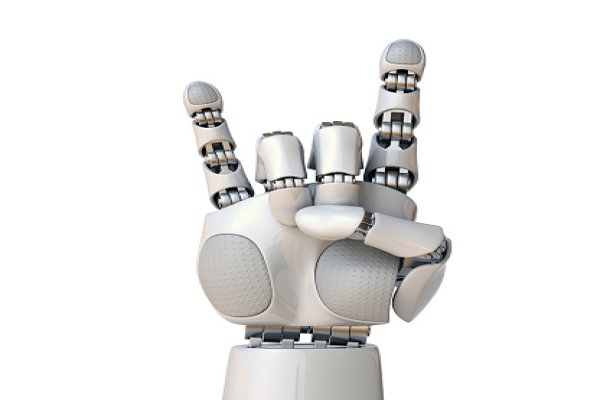AI is revolutionizing the recruitment process, and ChatGPT is an example of its application in crafting cover letters and CVs. However, this only represents a tiny part of what AI can accomplish in the hiring realm.
Since November 2022, ChatGPT’s AI chatbot has enabled anyone connected to the internet to generate written forms – anything from intricate essays and code to simple memos and poetry.
ChatGPT provides a swift and convenient service, allowing users to generate quick and efficient written content with useful prompts. It can easily complete tasks requiring complex written skills in minutes, proving it an invaluable creative tool.
Vince Miller, a sociology and cultural studies reader at the University of Kent, UK, specializes in such areas. He has extensive knowledge and expertise in this field.
Vince Miller says:
“I’ve had students use ChatGPT to write appeals for parking tickets,”
“But in general, the technology allows people who may not necessarily possess the best writing skills to suddenly have them.”
ChatGPT, OpenAI’s dataset containing 570 billion individual words, is helping jobseekers with its services. This technology can create convincing cover letters and transform small career details into an effective bullet-pointed CV. Jobseekers are taking advantage of these benefits provided by ChatGPT.
Hiring managers understand that candidates are already relying on AI to assist them, and this trend will only become more commonplace as technology advances. As a result, when sending an email to such individuals, one can be sure that they will be aware that the message is generated with AI’s help.
Recruiters may move away from their traditional methods of assessing applicants by introducing generative AI. Some recruiters don’t consider this a problem or a potential hiring red flag. Consequently, job applications could be confronted with a shift.
Recruiters could be transitioning away from the traditional ways of determining a candidate’s suitability, with AI playing an important role in this shift in job applications.
Randstad’s group marketing director, Adam Nicoll, based in Luton, UK, highlights how busy hiring managers may be unable to tell the difference between a cover letter written by an applicant and one created through AI. He believes they could be short on time to comprehend which one is which.
Adam Nicoll says:
“The language generated by ChatGPT reads clean, if formulaic. Compared to most cover letter writing, there are no idiosyncrasies; there are no red flags, but no personality,”
“It’s helping those who aren’t the best at writing and editing in producing a neat summary of career highlights. It’s the digitised version of asking a friend to review your CV.”
Recruiters have already been relying significantly less on traditional means of assessing potential employees, as pointed out by Nicoll.
Adam Nicoll continues to say:
“The cover letter has been on its way out for years: hiring managers skim read a resume for less than 10 seconds, let alone read a 200-word personal statement. At best, the cover letter is a box-ticking exercise that accompanies the CV – it’s virtually obsolete.”
Rather than relying solely on resumes, recruiters now prefer getting a better sense of applicants’ personalities by viewing their social media and LinkedIn profiles. Nicoll attests that this method has become more commonplace.
As the use of generative AI to create various written materials becomes more prolific, application elements like cover letters and resumes are losing importance. These components aren’t as influential in a candidate’s general application.
The University of Kent’s Miller says:
“If anyone can artificially enhance their pitching email to a hiring manager, then it becomes redundant,”
Since generative AI can create pre-interview presentations, employers could introduce more challenging tests as a response. This way, they would be ensuring higher standards for the selection process.
Miller went on to say:
“The onus is to test and evaluate what the machines can’t do,”
“While generative AI can arrange data in an interesting way, it’s not particularly creative – it can only work with what already exists. So, that could mean assessments demanding more creative and abstract thought from the candidate.”
Brooke Weddle, the partner at McKinsey & Company in DC, suggests that there should be a heavier focus on assessing candidates in person. She believes this scrutiny could be beneficial and set a favorable interview procedure precedent.
Brooke Weddle says:
“As opposed to cover letters, which typically convey little information critical to the actual hiring decision, employers look hard at cultural fit and soft skills during the interview process.”
Additionally, some recruiters have accepted implementing AI tools to aid in the job hiring process. Large organizations are now utilizing AI for various tests to analyze candidates’ skills and personalities and uncover their soft skills with data-driven insights to match them with available positions.
Platforms that offer recruiters more data on candidates are set to revolutionize the job application process completely, and these emerging tools certainly have this potential.
Brooke Weddle ads to say:
“we move from degree certifications to skills-based hiring”
Changes, it’s believed, may still be in store, potentially big ones. This could be just the start. It is thought that further transformations lie ahead, which could be the beginning.
Using AI-powered generative technology can revolutionize the hiring process, making it more efficient, objective, and inclusive. As with any new technology, it’s important to consider its limitations and ensure it’s used responsibly and ethically. By leveraging the power of AI, we can create a more equitable and diverse workforce where talent and experience are valued above all else.
Source: @BBC_Worklife



